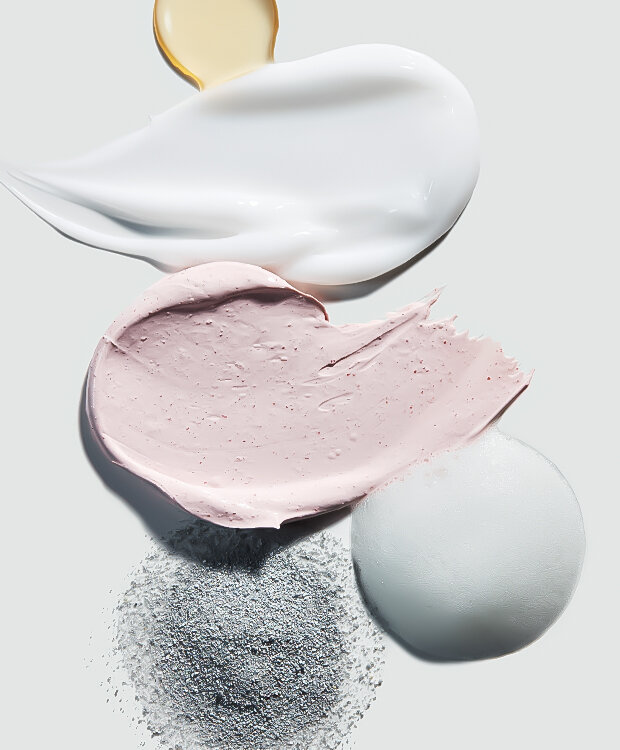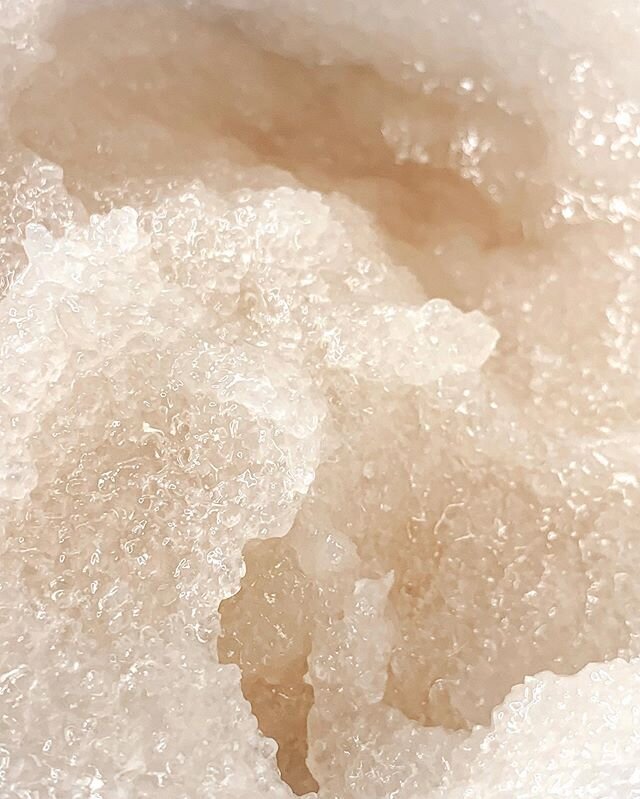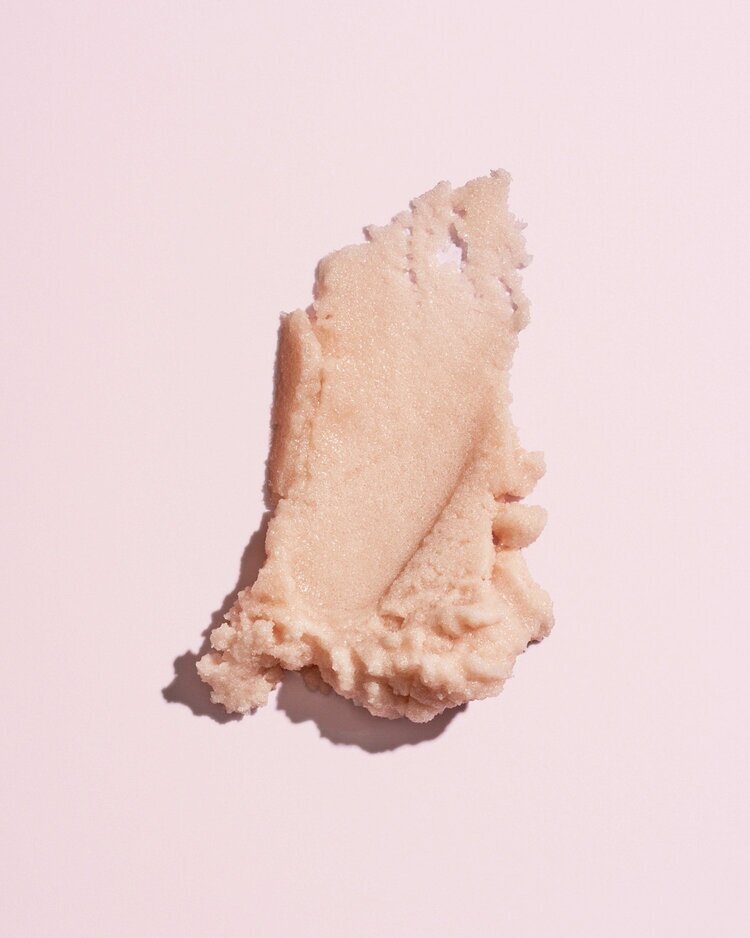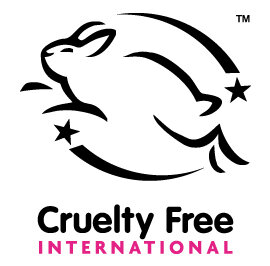Your Guide to Decoding Labels In Your Beauty Products
Life isn’t perfect, but your skincare should be! Whether you're in the market for a new cleanser or moisturizer, looking at the label or product information is one of the most imperative steps to selecting the right beauty product for you.
Not only can a label tell you what the product is (SPF, serum, eye cream) and who it's formulated for anti-aging, dry skin, acne-prone, it can also give you more insight into how the formula came to be and if it is eco-friendly, organic, cruelty-free or vegan.
Need help decoding the labels on your beauty products? Let's break down the top logos, words, phrases, and ingredients.
Decoding Words on Labels
Natural
When it comes to natural beauty products, not all ingredients have to be natural. Did you know that as long as a few listed ingredients are natural, the product can be labeled as natural? If a product is marked as 'natural' it will generally mean that at least some natural ingredients have been used in the formula. Still, a product can be labeled as natural and contain up to 30% synthetic ingredients. If you are looking for an entirely natural product, make sure it's labeled 100% natural. This means there are absolutely no synthetic ingredients. 100% natural products might also include a certified logo, such as one from the Natural Product Association (NPA).
Clean
Clean is a frequently used word to describe a type of beauty product made without ingredients that are potentially harmful or irritating. As a bonus, it also includes products that aren't tested on animals. That said, you'll want to proceed with caution as there are no government agencies that regulate clean skincare like the food industry. In beauty, the Environmental Working Group (EWG) is the closest thing to the USDA, noting that the EWG has a process that companies go through to get their products certified. The words "clean" and "natural" are often used interchangeably, but they are two different things.
Clean means the product will not cause any harm or irritation to the body and can include natural as well as synthetic ingredients
Natural means the ingredients are not chemically produced and have no synthetic additives.
Hypoallergenic
If you have sensitive skin, look for skincare and makeup products labeled hypoallergenic, as they are less likely to cause allergic reactions. That said, if your skin is prone to allergic reactions, you'll want to test the product out on the inside of your wrist or consult a dermatologist before applying it to your face. The term "hypoallergenic" is not regulated by the FDA and does not guarantee you won't experience an adverse reaction.
Non-Comedogenic
For those who have oily skin or are prone to breakouts, look for a non-comedogenic product. Anyone who is acne-prone should use non-comedogenic products. It means that the product does not contain ingredients known to clog up the pores, which increases the chances of getting acne. Non-comedogenic products come in various formulas, including ones you wouldn't think possible, like facial oils and sunscreens.
Parfum
If you look at your perfume collection, you may notice the word "parfum" written on the label. Put merely, parfum is French for perfume or fragrance. Because the FDA does not require cosmetic companies to individually disclose each fragrance, parfum or fragrance can stand for various fragrant ingredients, both synthetic and natural.
Natural Fragrances
So, how do you tell if your parfum (or skincare, haircare, and makeup) is formulated with naturally derived fragrances? Check the ingredients label. Products that say they contain natural fragrances are constructed with natural, raw materials like isolates. Isolates are substances that have been naturally isolated from a botanical, also known as essential oils. One of the most significant differences between synthetic and natural fragrances is that synthetic fragrances last longer than natural fragrances. Natural fragrances fade quickly because they lack the non-synthetic components, making a scent more vibrant and last longer.
Fragrance-Free
For those sensitive to fragrance, products with a fragrance-free certification or Safer Choice logo are a must. Added fragrances can cause allergies. Choose products that don't include fragrance as part of the [ingredient] list. According to the EPA, a fragrance-free product cannot have any fragrance, including the chemicals used to mask a scent.
Unscented
Just because a product is unscented doesn't mean it doesn't contain fragrance. If that were true, it would only be called (and certified) fragrance-free. Unlike fragrance-free products, unscented formulas may contain chemicals used to mask scents, making them scent-free, but not fragrance-free. Unscented products are ideal for those who are not sensitive to fragrance but prefer a formula that doesn't have a scent.
Sulfate-Free
Another phrase to look out for? Sulfate-free. Sulfates are aggressive detergents (commonly used in shampoos) made of sulfur-containing mineral salts. We don't want them in products because they are harsh and can cause irritation on the scalp or other areas.
Phthalate-Free
Sulfates aren't the only ingredients to be wary of. Phthalates can be harmful, too. Phthalates are a group of chemicals used in hundreds of products, such as soaps, shampoos, and lotions. There are different types of phthalates, but the one still most commonly used in cosmetics is DEP. They are used in personal care products to moisturize and soften skin and to aid in dissolving certain ingredients. This can damage the liver, kidneys, and reproductive system.
Paraben-Free
If you look on the back of your beauty product label, you may notice the words "paraben-free." But what are parabens, and why should we be cautious of them? Parabens are used as preservatives in cosmetic products. They are used to prevent the growth of bacteria, [but] have been known as estrogen disruptors, and have been linked to breast cancer and reproductive issues.
Decoding Symbols on Labels
Vegan
Just because a product has a certified cruelty-free logo printed on its label doesn't mean it's vegan. For vegan skincare or beauty product, you can trust, look for the Vegan Action or Vegan Awareness Foundation logo. Both of these logos certify that a product is formulated with vegan ingredients. Besides, for a product to be considered vegan, it must not contain animal products or by-products and must not be tested on animals.
Certified Organic/USDA Organic
Just like cruelty-free and vegan products, organic products also need to be legitimized by a special certification. For products formulated with organic ingredients, look for the certified organic or USDA organic symbol on the product label. Don't be fooled by marketing. If you see the word "organic" and no certification on a label, it might not be organic. For a product to be considered 'certified organic,' the item must be 95% or higher free of synthetic additives like pesticides, chemical fertilizers, and dyes.
Ecocert
Another certification logo to look out for? Ecocert. If a product has an Ecocert logo, it has been inspected by one of the highest respected organizations determining if a product is organic. Ecocert is an organic certification organization based in Europe but conducts inspections in over 80 countries. It is one of the largest organic certification organizations in the world.
PAO
The PAO symbol—or, period-after-opening symbol—is another essential logo to look out for. It looks like a small jar of body butter with a number and the letter "M" written inside or underneath it. The number represents a product's expiration date once opened for the first time. For example: If you open a product labeled "6M," you have 6 months to use it before it's considered expired.
Cruelty-Free or Leaping Bunny
If you're looking for skincare or beauty products certified cruelty-free, check the label for a Leaping Bunny logo, issued by Cruelty-Free International. If a product has a bunny on it, it means it has not been tested on animals. It's globally recognized as cruelty-free and has gone through a variety of rigorous testing which includes independent audits by Cruelty-Free International. According to the organization, this ensures transparency between the brand and consumer, as brands often include cruelty-free jargon (and can go as far as to have a variation of a bunny logo) on the packaging without certification, causing confusion. To be sure your cruelty-free product is legit, check the label for the specific Leaping Bunny logo associated with Cruelty-Free International.
It can help you get a better sense of where the formula (and its ingredients) were before being bottled up and placed on the shelf.
Having too many ingredients listed, you'll want to steer clear of it; the more ingredients a product has, the more likely the product or its ingredients have been tested on animals. If this is something you're concerned about, shop for products with the Leaping Bunny logo (mentioned above) and consider purchasing vegan beauty products.
The ingredients list can tell a formula's unique story and help you better determine if the product is right for you. Like packaged or processed food, you can tell which ingredients have higher concentrations because ingredients are listed in order from greatest to least amount. We should all pay attention to this because ingredients can be listed low on the list (meaning lowest concentration).
If you have never heard of an ingredient before and are concerned about what it is and the effect that it might have on your skin, researching the specific ingredient online or consulting a dermatologist before applying it to your skin.








